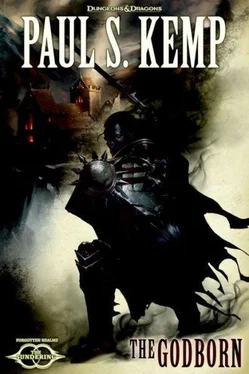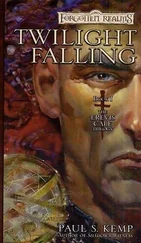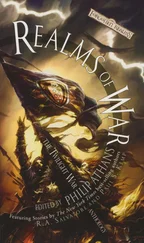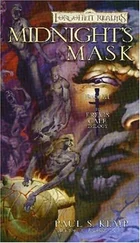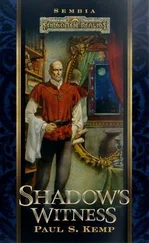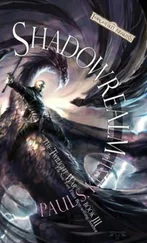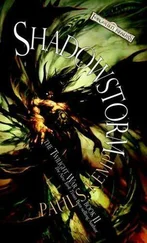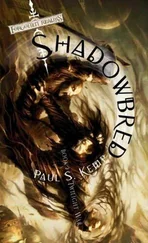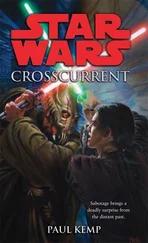Paul Kemp - The Godborn
Здесь есть возможность читать онлайн «Paul Kemp - The Godborn» весь текст электронной книги совершенно бесплатно (целиком полную версию без сокращений). В некоторых случаях можно слушать аудио, скачать через торрент в формате fb2 и присутствует краткое содержание. Год выпуска: 2013, ISBN: 2013, Издательство: Wizards of the Coast, Жанр: Фэнтези, на английском языке. Описание произведения, (предисловие) а так же отзывы посетителей доступны на портале библиотеки ЛибКат.
- Название:The Godborn
- Автор:
- Издательство:Wizards of the Coast
- Жанр:
- Год:2013
- ISBN:9780786963737
- Рейтинг книги:5 / 5. Голосов: 1
-
Избранное:Добавить в избранное
- Отзывы:
-
Ваша оценка:
- 100
- 1
- 2
- 3
- 4
- 5
The Godborn: краткое содержание, описание и аннотация
Предлагаем к чтению аннотацию, описание, краткое содержание или предисловие (зависит от того, что написал сам автор книги «The Godborn»). Если вы не нашли необходимую информацию о книге — напишите в комментариях, мы постараемся отыскать её.
The Godborn — читать онлайн бесплатно полную книгу (весь текст) целиком
Ниже представлен текст книги, разбитый по страницам. Система сохранения места последней прочитанной страницы, позволяет с удобством читать онлайн бесплатно книгу «The Godborn», без необходимости каждый раз заново искать на чём Вы остановились. Поставьте закладку, и сможете в любой момент перейти на страницу, на которой закончили чтение.
Интервал:
Закладка:
“You’re good girls,” he said, patting their heads, stroking their muzzles.
He would have been dead inside without them, he knew that. He sometimes felt that they were the sole thread connecting him back to his humanity. And he missed his humanity. He missed need , the satisfaction that came from striving for ordinary things and achieving them. Divinity had expanded his mind but dulled his body to pleasure. He could partake of food, drink, and women, but he experienced all of them at a distance, almost as an observer, not a participant. The curse of a divine mind, he supposed. For some reason the pleasure he felt smoking his pipe remained sharp, so he smoked often. Jak Fleet, an old companion of his, would have smiled to see it.
“All right, girls,” he said, and patted them each one last time before grabbing his pipe and standing. They watched him stand, forlorn, as dogs do.
He’d drawn on his pipe, thinking, planning. He’d put things in place as best he knew how. Now he had to wait for Vasen-he’d be over thirty by now-to come to him, for he dared not visit Cale’s son again. After that, he had to rescue Cale. Then he had to resurrect a god or destroy the world, one or the other.
“Damn,” he said.
He thought of his old life, thought of Cale, Jak, and Mags. Mags.
He made up his mind. He’d need Mags, someone he could count on, someone he could trust. He’d risk leaving the Shadowfell one more time before all the pieces started to move.
Magadon stood behind the bar of his tavern, wiping one tin tankard after another with a dirty rag. He’d closed an hour earlier and his now-empty place-a rickety taproom he’d named the Tenth Hell, to amuse himself-felt hollow. It still carried an echo of the day’s stink, though: smoke and beer and sweat and bad stew.
Daerlun, and indeed all of Faerun, had changed much over the eighty years he’d owned the place, but his tavern remained more or less as it was since the day he’d first bought it. He’d done nothing but minimal maintenance.
It was frozen in the past. Like him.
He, too, had changed little over the years. He’d let his horns and his hair grow long, and he’d grown more powerful in the Invisible Art, but little else. He was passing time, nothing more and nothing less. He served his ale and his stew, his weapons and gear stored under the bar, while he waited.
Damned if he knew for what. Something.
The tavern was a two-fireplace, decrepit wooden building that attracted a decrepit clientele who didn’t mind a half-fiend barkeep. The building nestled against Daerlun’s eastern wall, squalid and lonely. If the Shadovar and their Sembian allies ever marched on Daerlun-which had declared itself an independent city decades ago-they’d come from the east, and Magadon’s tavern would be among the first buildings to burn. Maybe there was meaning in that.
The threat of war with the Shadovar had loomed over Daerlun for decades, as much a shadow on the city as was the miasmic air of neighboring Sembia. Over time the populace had gotten so used to the threat of an attack that it had gone from danger to jest: “As probable as Sakkors floating up to the walls,” they’d say, in reference to something deemed unlikely.
But the jests had been fewer of late. Teamsters and peddlers and soldiers spoke in quiet tones of skirmishes in the perpetual dark of the Sembian plains, of Shadovar forces blockading the lands south of the Way of the Manticore, of battles being fought in the Dales. An open call for mercenaries had gone out from Sembia, and Magadon imagined shiploads of blades-for-hire sailing into the ports of Selgaunt and Saerloon. The war would eventually reach Daerlun and its towering, obsidian walls. If the Dales fell to Sembia’s forces, Daerlun would fall next. Magadon didn’t think it would be long. Sakkors had been sighted once or twice on the distant horizon, floating on its inverted mountain, hanging in the dark Sembian sky like a promise of doom.
Sakkors. Magadon had not actually seen it himself in many years, but then he didn’t need to. He’d seen it long ago and dreamed of it often. The sentient crystalline mythallar that powered the city and kept it afloat-it called itself the Source-had permanent residence in Magadon’s mind.
Long ago Magadon had nearly lost himself in the Source’s vast consciousness. He’d augmented his mind magic with its power and become a godling, at least for a moment. In the process he’d also become a monster, but his friends had saved him, and he’d stood with Erevis Cale and Drasek Riven and defeated a god.
Thinking of those times made him smile. He considered those days the finest in his life, yet things felt incomplete to him. That was the reason he could not move on. That was the reason he tended bar and bided his time.
The Source still called to Magadon, of course, but because he’d grown stronger over the decades, its call no longer pulled at him with the insistence it once did. Instead the Source’s mental touch felt more like a gentle solicitation, an invitation. He could’ve blocked them-a simple mind screen would have shielded him-but the Source’s touch had become familiar over the years, a comforting reminder and a connection to a past he wasn’t yet ready to let go.
Clay lamps burned on a few of the tavern’s time-scarred tables, casting shaky shadows on the slatted wood walls. He stared into the dark corners of the room, a little game he played with himself, and let a doomed flash of hope spark in his mind. He gave the hope voice before it died.
“Cale? Riven?”
Nothing. Shadows danced, but none spoke. Cale was dead, Riven was a man-become-a-god, and Magadon hadn’t seen him in almost a century.
He blew out a sigh and hung all but one of the tankards he’d cleaned on their pegs behind the bar. He filled the one he’d kept from the half-full hogshead and raised it in a salute. After draining it, he set to closing down the tavern for another night, all of it routine. His life had become rote.
He went to the tables, each of them wobbling on uneven legs, and blew out the lamps. The low fire in the hearth provided the room’s only light. He checked the stew pot on its hook near the hearth, saw that almost nothing remained, and decided to leave cleaning it for the morning. He took the iron poker from the wall, intending to spread the coals and head to his garret next door, where he’d lay awake and think of the past, then fall asleep and dream of the Source.
All at once the air in the room grew heavy, pressed against his ears, and a cough sounded from behind him. He whirled around, brandishing the poker. Instinct caused him to draw on his mental energy and a soft, red glow haloed his head.
The darkness in the tavern had deepened so that he could not see into the corners of the room. He stood in a bubble of light cast by the faint glow of his power and the fire’s embers. He slid to his left, holding the poker defensively, and put his back against the hearth. He’d left his damned weapons behind the bar.
“Show yourself,” he said.
He charged the metal poker with mental energy, enough to penetrate a dragon’s scales. Its end glowed bright red. The light cast shadows on the walls.
“I said: Show yourself.”
“You carry that instead of a blade now?” said a voice from his right.
Magadon whirled toward the voice and shock almost caused him to drop the poker.
“Riven.”
The darkness in the room relented. The weightiness in the air did not.
“Nice that someone remembers that name,” Riven said. He stepped from the darkness, emerged from it as if stepping out from behind dark curtains, all compact movement and blurry edges. Sabers hung from his belt. A sneer hung from his lips. He hadn’t aged, but then he wouldn’t have. Magadon reminded himself that he was not talking to a man but a god.
Читать дальшеИнтервал:
Закладка:
Похожие книги на «The Godborn»
Представляем Вашему вниманию похожие книги на «The Godborn» списком для выбора. Мы отобрали схожую по названию и смыслу литературу в надежде предоставить читателям больше вариантов отыскать новые, интересные, ещё непрочитанные произведения.
Обсуждение, отзывы о книге «The Godborn» и просто собственные мнения читателей. Оставьте ваши комментарии, напишите, что Вы думаете о произведении, его смысле или главных героях. Укажите что конкретно понравилось, а что нет, и почему Вы так считаете.
